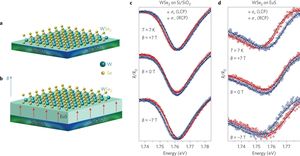On February 1, 2025, Davi Alcolumbre officially stepped down from his role as President of the Brazilian Senate, marking the end of his term with strong remarks on the defense of democracy as his key legacy. Alcolumbre's departure signals not just a change of leadership but may foreshadow significant shifts within Brazil's political and economic landscapes.
Alcolumbre declared, "I view democracy as the legacy I leave behind," portraying his time as Senate President as guided by a commitment to democratic principles. This perspective raises questions about what the future holds for Brazil's legislative processes.
Taking over the reins is Rodrigo Pacheco, who previously led the Senate and is now rumored to be under consideration for the role of Minister of Development, Industry, and Foreign Trade. Discussions surrounding ministerial reform are amplifying speculations about how Pacheco’s appointment could reshape Brazil’s economic policies under President Luiz Lula da Silva.
The Senate, as outlined by observers, plays a pivotal role in forming laws and shaping public policy. Its leadership not only impacts legislative productivity but also sets the tone for collaboration among Brazil's diverse political factions. Pacheco’s potential elevation to minister may signal significant changes, especially concerning Brazil's approach to trade and development.
Pacheco's possible new role is shrouded with promise and challenges. Under Lula's administration, his expected appointment could bolster Brazil's global economic standing and strengthen trade relations with the United States. Political analysts indicate this change might lead to more favorable trade policies and encourage foreign investments.
"The Senate’s role is to strengthen our democratic institutions," Pacheco has emphasized, underscoring the importance of maintaining democratic values, even as rumors of governmental shifts circulate. With Alcolumbre’s commitment to collaboration, observers are hopeful these values will be carried forward.
Alcolumbre’s leadership was characterized by his capacity to mediate between conflicting interests within Congress. He cited productivity as one of his administration's achievements, though he acknowledged the constant tension between divergent political views. The art of conciliation will be equally necessary for Pacheco as he navigates potential shifts roaring on the horizon.
The upcoming challenges facing the newly formed leadership structures present significant hurdles. Strengthening democratic institutions and building consensus will be nuanced tasks, demanding adept leadership from both Alcolumbre and Pacheco.
While Davi Alcolumbre's Senate presidency may have come to close, his impact on governance and leadership style will significantly shape the Senate's operations moving forward. Challenges await as Pacheco steps potentially onto the national stage, with discussions around boosting Brazil's industrial growth and addressing domestic economic challenges already heating up.
Critics of the current administration caution against complacency, pointing out insecurities marked by economic instability and rising inflation. If Pacheco does assume the ministerial role, his ability to craft effective policies amid these pressures will be tested thoroughly.
Both Alcolumbre and Pacheco represent new chapters for Brazil's governance. The stakes have risen, as their leadership may directly influence how Brazil positions itself within the global economy. With the world watching closely, the transitions occurring now could be fundamental to how the nation negotiates its economic recovery and solidifies its place on the world stage.
Given the continuing discussions about trade policies, economic strategies, and cooperation, the Brazilian Senate, now under the steered hand of Davi Alcolumbre, is at the crossroads of potential reform. Future developments will dictate how effectively the Senate can operate within the constraints of differing political ideologies and pressing economic challenges.
Rodrigo Pacheco’s anticipated leadership is set against this background of expectation and scrutiny. Observers remain eager to discern whether his seasoned experience will translate to meaningful action within the ministries of Lula's government.
With every transition of leadership, there lies uncertainty. Still, many are hopeful for proactive governance as the composition of Brazil’s political bodies evolve. The coming months will undeniably set the tone for legislative engagement, economic strategies, and the interplay of democratic principles within Brazilian politics.



